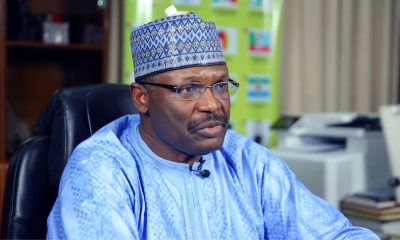Business
FG To Release Funds For Retirees’ Pensions
The Acting Director-General of National Pension Commission (PenCom), Mrs Aisha Dahir-Umar, last Wednesday said the Federal Government had begun working on modalities for pension payment to the next batch of retirees.
Dahir-Umar told newsmen in Lagos that the Federal Government and the PenCom would soon release substantial funds for the payment.
She said retirees that had perfected their documentation and verification processes would be captured for payments in the next batch.
The PenCom boss said the funds for the Accrued Rights was expected to cover retirees from October 2016 to August 2017.
Dahir-Umar recalled that that the Federal Government, through PenCom, had released N54 billion in April to clear pension backlog for payment of the last batch of retirees from January to September 2016.
Dahir-Umar also commended President Muhammudu Buhari for giving prompt attention to retirees’ well-being by settling accrued pensions for that period.
“In spite of competing demands for funds, President Buhari has always expressed concern for the plight of workers and pensioners.
“It has brought relief to thousands of our elders who have served the country and deserve to be paid their entitlements promptly and fully too,” she said.
She explained that some pensioners in the last batch did not receive their pension, may be due to errors in documentation and verification process.
“Such also may be caused by late documentation.’’
Dahir-Umar said that documentation began in June every year and that the commission had been placing notices in newspapers.
“Currently, the commission has almost finished for this year; we are at the Women Centre, Abuja, verifying pensioners from agencies located within the Federal Capital Territory (FCT),” she said, adding that the commission also have centres across the country.
She, however, denied allegations that the commission and the Pension Fund Administrators (PFAs) delayed payments and misappropriated funds meant for pensioners.
She added that the commission and the PFAs were being watched by the Federal Government and guided by core principles that could not be truncated.
Business
FG Flaggs Of Renewed Hope Employment Initiative
Business
Kachikwu Makes Case For Increased NCI Fund To US$1bn … Timeline For Developing Oil Blocks
Business
FG Embarks On Sanitizing Mining Industry
-
Politics1 day ago
2027: Bayelsa APC Adopts Tinubu As Sole Candidate … As Lokpobiri, Lyon Shun Meeting
-
Sports1 day ago
GOtv Boxing Night 34 holds Dec. in Lagos
-

 Politics1 day ago
Politics1 day agoAlleged Smear Campaign Against Yakubu, CSOs Demand Apology From Uzodimma
-
Politics1 day ago
2027: Jega Condemns Premature Campaigns, Blames Elected Officials
-
Politics1 day ago
Why INEC Can’t Punish Politicians For Early Campaigns – Yakubu
-
Sports1 day ago
WCQ: NFF Denies Post Match Statement
-
Politics1 day ago
Stopping Natasha’s Resumption Threatens Nigeria’s Democracy – ADC
-
Sports1 day ago
Gov. Decries Delta’s Poor Performance At 2025 NYG

